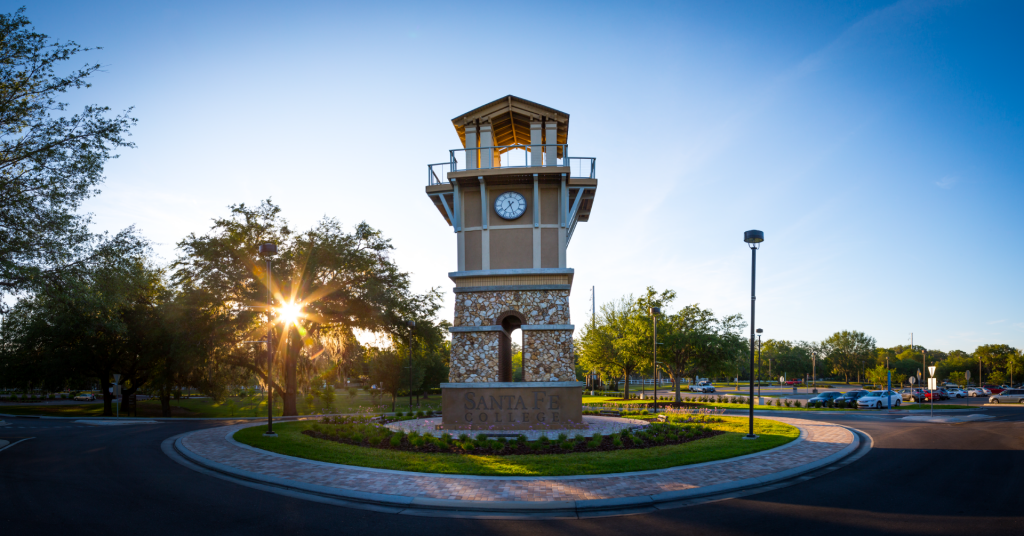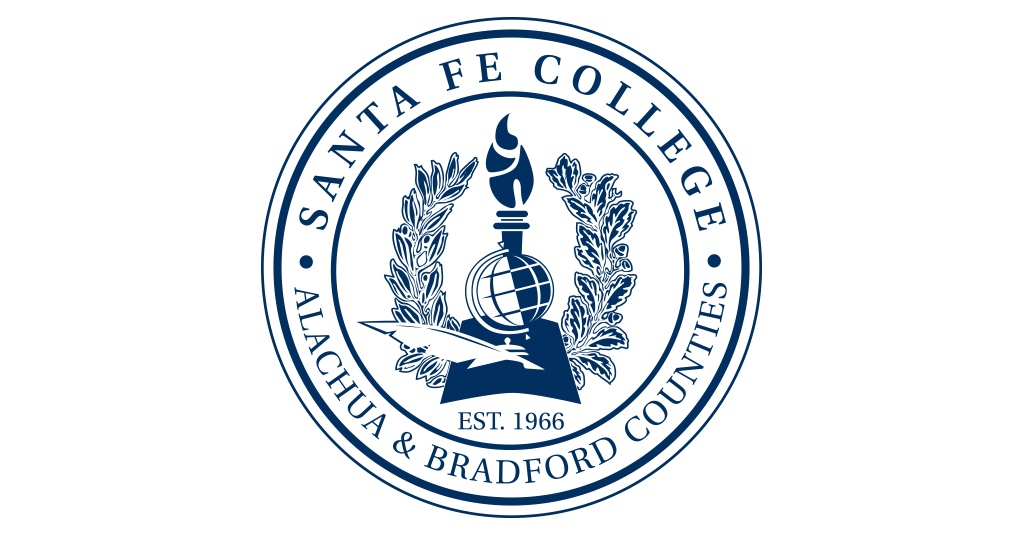Fledgling Businesses Learn to Fly at SF's Entrepreneur Incubator
January 10, 2012
The Entrepreneur Incubator program at Santa Fe's Center for Innovation and Economic Development (CIED) helps small businesses develop locally. Three budding companies - Student Maid, Mike Hill Construction and Corks and Colors Studio - recently left the warm, cozy confines of the incubator to spread their wings as full-fledged Gainesville businesses.
"These are three of our most interesting and successful incubating companies," said Dug Jones, Assistant Vice President of Economic Development at the CIED. "Each is a great example of what we aspire to accomplish with our program."
The incubator's mission is to enhance economic development and job creation in the community by providing support and services to qualified start-up companies. Incubator entrepreneurs are given access to business development resources, shared office space, and administrative support.
"The CIED gave me a physical location for my business. I had a great concept, but nowhere to teach my classes," said Rebecca Barborak, owner of Corks and Colors Studio, who left the incubator for her own studio space in late November. "I also got a lot of encouragement. I felt like my tiny business was part of something bigger."
The Entrepreneur incubator program began three years ago. Since then, 52 companies have used the CIED's resources. Twenty-two companies are currently incubating and 30 have graduated from the program.
The term "graduation" is used loosely at the CEID, as no formal ceremony or specific date marks a company's departure. The length of stay varies depending on a company's needs. On average, small businesses remain in the program for 12-18 months.
"When we first started incubating, I had no idea what to expect," said Kristen Hadeed, founder and owner of Student Maid. "It seemed like we would be there forever because the thought of moving into our own office was quite scary. After a month or two, I realized that with the help and support of the incubator's resources, we could accomplish anything we dreamed."
Hadeed grew Student Maid from a one-person operation in 2009, to a company that now boasts 300 employees during peak seasons. Recognized as the Gainesville Area Chamber of Commerce's "Leading Women's Enterprise" in 2010 and 2011, Student Maid graduated from the Entrepreneur Incubator in August 2011.
Hadeed originally planned to be in the incubator for two years, but in just 14 months Student Maid was ready for its own space. Barborak and Mike Hill, owner of Mike Hill Construction, were also eager and worked aggressively to get out on their own.
"It's almost like when your kids grow up. They reach a point when they need to be on their own, for their own good," Jones said. "We would nudge them out of the nest if we felt we were no longer serving their best interest, but as of yet, we have not had to do that."
Even after a business takes flight, the CIED is still there to offer support and resources. Student Maid, for example, can use the CIED when it needs a meeting space that can accommodate large groups of employees, and for training or interviews.
"The incubator is still a big part of us." Even though we may not be physically located there, we are still very much supported by its wonderful resources," Hadeed said. "Now we can build on the success we had in the incubator and take Student Maid to new heights."
Jones noted the qualities that make a company successful while incubating are the same ones that continue to grow success once a business leaves the CIED. A combination of an innovative idea, persistence, and a strong network seem to be the keys to victory. And, in a soft economy, every bit of hard work is needed.
Even though a "down" economy can make it difficult for some companies to flourish, it can also be a time of tremendous growth for small businesses. Jones said that many times in a soft economy people are pushed out of their comfort zone through job loss or financial difficulties and are more likely to take a risk on something they wouldn't have otherwise. Also, different types of businesses present opportunities in a soft economy.
"Things like shared resources and partnerships tend to boom when the economy is down, so a soft economy is not all bad for business," Jones added.
One of the benefits of starting out in the incubator is collaborating and learning from other up-and-coming local businesses. For instance, Hill and Hadeed learned while working together in the incubator that collaborating on office space would be more efficient for both their businesses. Now, they share an office space in Gainesville, as neither of them needs to be there full time. They can pool financial resources and get the best bang for their buck.
"The most valuable part of the incubator is the atmosphere and being surrounded by other start-ups," Hadeed said. "Not only did we learn from one another, but we also motivated each other, and acted as a sounding board when others felt frustrated or discouraged."
To have support while working toward a goal is invaluable for these companies. Jones said if an incubating business reaches its personal goal in the program, it's considered successful. Goals are different for each business that comes through the incubator.
"My goal was simply to increase attendance and grow organically," Barborak said. "I definitely met my goal of growth. I feel that my time at the CIED prepared me and my business well enough to succeed in the outside community."
While there is no financial incentive for the CIED when a business succeeds, the intangible benefits to the community are what make the incubator a worthwhile venture for Santa Fe. Once a local business is successful on its own, it is creating jobs and adding value to the community. Jones estimates that in its the three years operating, the incubator has channeled about $2 million back into the local economy through the small businesses that have graduated and are now operating in Gainesville.
One additional goal of the Entrepreneur Incubator program is to encourage graduating entrepreneurs to "pay it forward" and share what they learned with other local start-up companies. Jones expressed that Hadeed takes that objective to heart. She is dedicated to the Gainesville community, serving on boards and committees for several local organizations.
"Kristen has done a lot to help other companies," Jones observed. "She's a great example of what we hope our companies will do to foster growth in our community. It's bittersweet to see her go."
Hadeed expressed that the feeling is mutual.
"It's kind of like graduating from high school - you are really excited to go to college, but you're scared and you know you are going to miss your family. It's sad and scary to leave an environment that has worked so well for us, but change is a good thing, and with change comes growth."
For more information about the Entrepreneur Incubator, please contact Dug Jones at 352-395-5269 or dug.jones@sfcollege.edu, or visit www.sfcollege.edu/cied/incubator
###
~ This press release was written by Amanda Hernandez, Communication Specialist, College Relations
Info on the graduating companies:
• Corks & Colors Studio is Gainesville's newest creative venue. It's a place where friends can gather together, bring wine and snacks and enjoy an evening of painting. Instructors guide participants step-by-step in creating a work of art. (
• Mike Hill Construction assists homeowners in maintaining their home's structure, equipment and systems through a proactive and preventative approach to home maintenance. (www.mikehillconstruction.com)
• Student Maid is a commercial and residential cleaning service that prides itself in catering to the unique needs of Gainesville residents. All of their employees are college students and must meet a minimum 3.5 GPA requirement. (www.studentmaid.com)
CONTACT
Dug Jones, Assistant Vice President of Economic Development, 352-395-5269 (office) or 352-359-6287 (cell); dug.jones@sfcollege.edu

